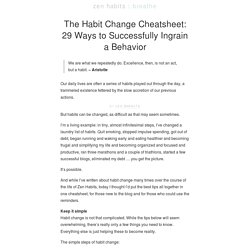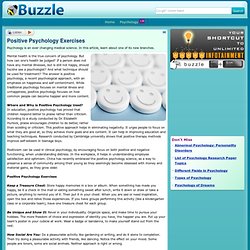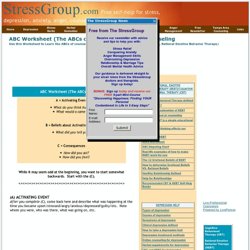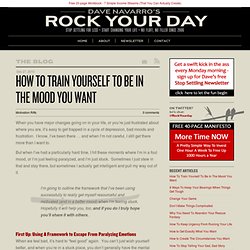

40 Lessons for Finding Strength in Hard Times. Post written by: Marc Chernoff Sometimes you have to die a little on the inside first in order to be reborn and rise again as a stronger, smarter version of yourself.

Nobody gets through life without losing someone they love, someone they need, or something they thought was meant to be. But it is these losses that make us stronger and eventually move us toward future opportunities for growth and happiness. Over the past five years Angel and I have dealt with several hardships, including the sudden death of a sibling, the loss of a best friend to illness, betrayal from a business partner, and an unexpected (breadwinning) employment layoff.
These experiences were brutal. Here are some lessons we’ve learned along the way: You are not what happened to you in the past. – No matter how chaotic the past has been, the future is a clean, fresh, wide open slate. Photo by: Chris Schoenbohm If you enjoyed this article, check out our new best-selling book. Positive Psychology Exercise - Emoclear Self-Helpapedia. Emoclear Positve Psychology Exercise I: Doing Pleasurable, Important, and Meaningful Activities Every day for two weeks do the following: 1.

Choose a pleasurable activity to do alone and do it to completion. Example: Gardening or writing.2. Choose a pleasurable activity to do with others and do it until completion. Emoclear Positive Psychology Exercise II: Building Character. Based on Character Strengths (Peterson & Seligman, 2004). For two weeks pick two activities per day from the list below. The Activity List: 1. Here's a reflection exercise for accessing appreciation and gratitude: This exercise is to be done daily for two weeks. 1. » The Habit Change Cheatsheet: 29 Ways to Successfully Ingrain a Behavior. We are what we repeatedly do.

Excellence, then, is not an act, but a habit. – Aristotle Our daily lives are often a series of habits played out through the day, a trammeled existence fettered by the slow accretion of our previous actions. By Leo Babauta But habits can be changed, as difficult as that may seem sometimes. I’m a living example: in tiny, almost infinitesimal steps, I’ve changed a laundry list of habits. It’s possible. And while I’ve written about habit change many times over the course of the life of Zen Habits, today I thought I’d put the best tips all together in one cheatsheet, for those new to the blog and for those who could use the reminders. Keep it simple Habit change is not that complicated. The simple steps of habit change: 1. 2. Happiness Exercises. Positive Psychology Exercises.
Mental health is the true concern of psychology.

But how can one's health be judged? If a person does not have any mental illnesses, but is still not happy, should he/she see a psychologist? And what technique should be used for treatment? The answer is positive psychology, a recent psychological approach, with an emphasis on happiness and self contentment. While traditional psychology focuses on mental illness and unhappiness, positive psychology focuses on how common people can become happier and more content. Where and Why is Positive Psychology Used? Wellness Worksheets. ABC Worksheet, ABCs of REBT, rational therapy abc chart, REBT, R. While it may seem odd at the beginning, you want to start somewhat backwards.

Start with the (C). ( A) ACTIVATING EVENT After you complete (C), come back here and describe what was happening at the time you became upset/stressed/angry/anxious/depressed/guilty/etc. Note where you were, who was there, what was going on, etc. (B) BELIEFS 1) list the irrational Beliefs (iBs) that lead to (C) (list the iBs that led to your reaction/behavior) How To Train Yourself To Be In The Mood You Want. Dec 27, 2010 When you have major changes going on in your life, or you’re just frustrated about where you are, it’s easy to get trapped in a cycle of depression, bad moods and frustration.

I know, I’ve been there … and when I’m not careful, I still get there more than I want to. But when I’ve had a particularly hard time, I hit these moments where I’m in a foul mood, or I’m just feeling paralyzed, and I’m just stuck. Sometimes I just stew in that and stay there, but sometimes I actually get intelligent and pull my way out of it. I’m going to outline the framework that I’ve been using successfully to really get myself resourceful and motivated (and in a better mood) when I’m feeling stuck. First Up: Using A Framework to Escape From Paralyzing Emotions When we feel bad, it’s hard to “feel good” again. The reason for this is that steps take the emotion out of our situation and give us direction to simply act. A: AGREE With Yourself That You Don’t Want To Be In This Mood Right Now. Dave.